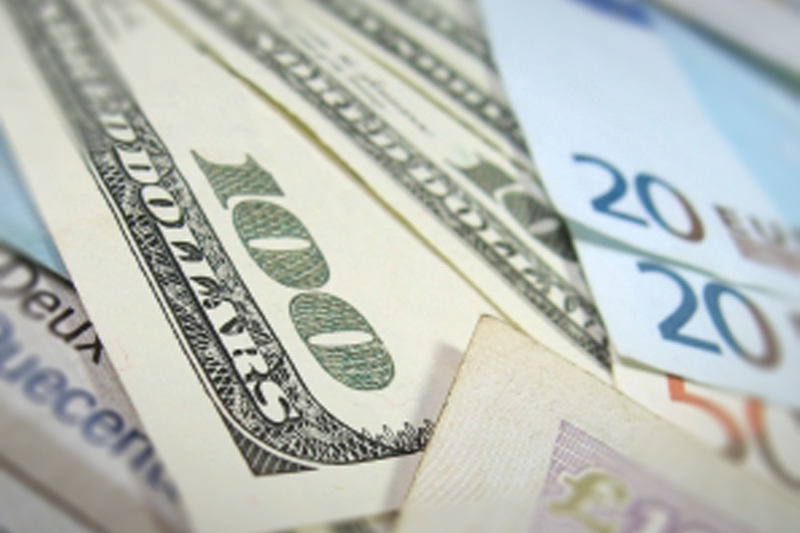Investing.com -- EUR/USD fell slightly on Tuesday in a subdued day of trading, as continuing instability regarding the Greek debt crisis weighed on the euro.
The euro slipped to 1.0733 in U.S. afternoon trading, down 0.0006 or 0.06%. EUR/USD fell to a daily-low of 1.0662 in European afternoon trading, before paring some of the losses during the remainder of the session.
Since the start of March, EUR/USD has rarely moved outside of a range between 1.05 and 1.10.
Currency traders await a key meeting of euro zone finance ministers in Latvia on Friday where Greece prime minister Alexis Tsipras is expected to present a revised list of reform measures that could unlock a vital financial lifeline to the cash-strapped country. The effort could raise about €2 billion, according to multiple reports.
On Tuesday, Jeroen Dijisselbloem, the head of the euro group of prominent finance ministers, steadfastly insisted that Greece must meet all of its obligations in the coming weeks if it wants to remain in the euro zone. In late-July, Greece owes a payment of €3.45 billion to the European Central Bank for bonds related to a 2012 default. First, Greece must meet three separate obligations to the International Monetary Fund totaling more than €1.0773 billion.
"The money is starting to run out," Dijisselbloem told European broadcaster RTL.
Dijisselbloem remained adamant that every effort must be undertaken to prevent a Greek exit from the euro zone, a move that has earned the popular moniker "Grexit," in recent weeks.
"If Greece leaves the euro zone you would get very dangerous instability," he added. "It's in the interests of Greece and the euro zone as a whole to avoid that."
The sentiments were echoed on Tuesday by Jason Furman, the chairman of the White House Council of Economic Advisers. It is commonly thought by a number of economists that a Greek departure from the euro zone could have a contagion effect, impacting countries such as Spain, Italy and Portugal whose yields on its government debt have slipped into negative territory.
"A Greek exit would not just be bad for the Greek economy, it would be taking a very large and unnecessary risk with the global economy just when a lot of things are starting to go right," Furman said in an interview with Reuters.
Also on Tuesday, German 10-Year bunds rose 0.03 to 0.10, even as prominent bond trader Bill Gross declared a short sale on the bund, "the short of a lifetime." Gross does not expect European Central Bank president Mario Draghi to continue to buy the 10-year German bunds if the yields drop too far into negative territory.
"The valuation is such that these German bunds, the nine-year, 10-years basically yield nothing," Gross told CNBC. "There is a minus 20 basis point barrier through which Draghi will not continue to buy. It has a downside of 10 or 15 points, so it's just a question of when. It's certainly a trade that doesn't cost you anything."
Yields on U.S. 10-Year Treasuries, meanwhile, inched up 0.014 to 1.911%.
Elsewhere, the ZEW Centre for Economic Research said its index of German economic sentiment dropped to 53.3 from 54.8 in March. Economists had expected a reading of 55.3.
